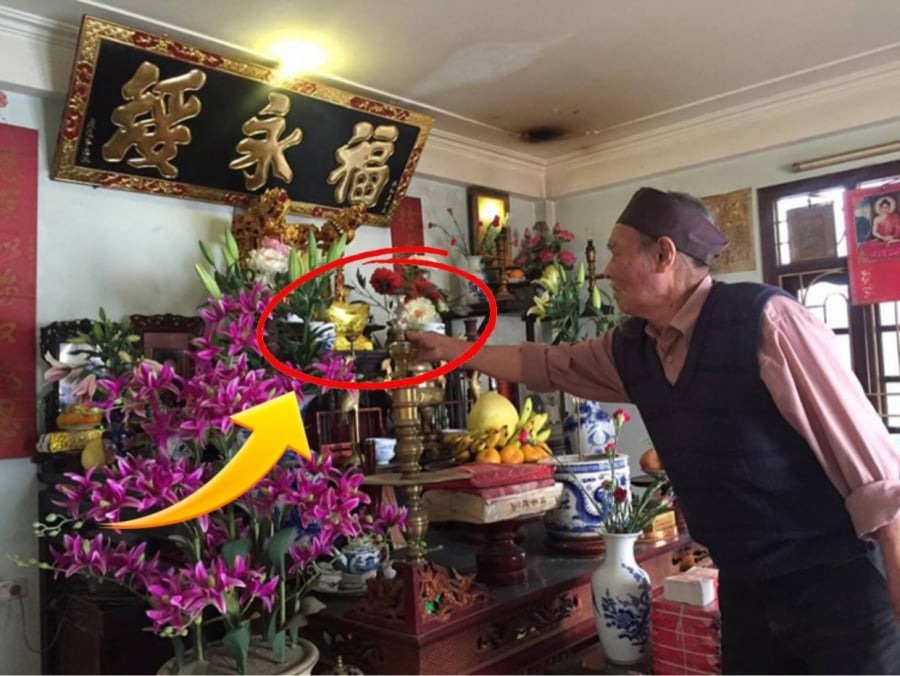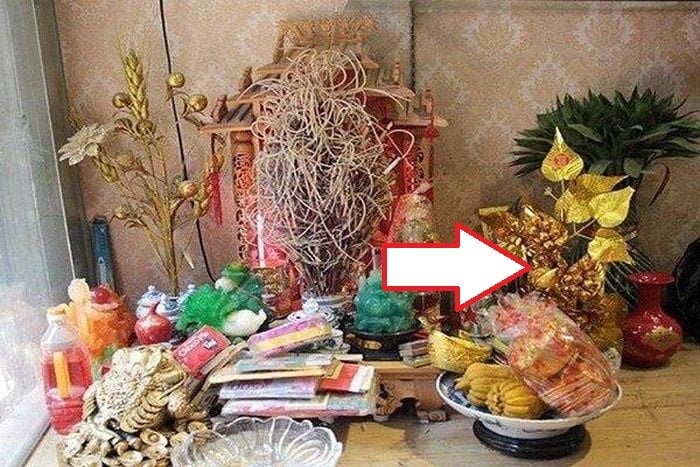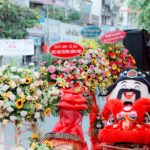Do not hang paper money or joss paper
Paper money and joss paper should not be placed on the altar. However, many families still have the habit of placing these items on the altar, wishing for their ancestors’ blessings and bestowing fortune.
However, according to spiritual beliefs, placing money and gold on the altar will not only fail to bring fortune but may also cause the family business to face difficulties and stagnation, leading to failure. Money not only fails to come into the house but is also easily depleted, leading to a state of deprivation.
Therefore, it is better to keep your money at home and avoid displaying paper money and joss paper on the altar for an extended period.

Burn them immediately after the ceremony.
Do not place artificial fruits or flowers
In feng shui, worship is about sincerity. This is a spiritual matter, and only when the homeowner is devout will they receive blessings from their ancestors. Therefore, when offering sacrifices to your ancestors, do not place artificial fruits on the altar. Do not skimp on money and reduce your sincerity; you may even be considered disrespectful.
If you go to the temple and bring back golden branches and jade leaves, these should also not be placed on the altar for worship. Contrary to popular belief, placing golden branches and jade leaves from the temple on the altar does not bring more blessings or fortune; it may even unintentionally bring home unwanted things. This is because temples are not only dwelling places for deities and Buddha but also places where wandering souls seek refuge. Be careful about what you bring home as some things should not be placed on the altar.
The offerings and special dishes for the Duanwu Festival usually include:
- Glutinous rice wine: Red glutinous rice wine or glutinous rice wine made from ordinary glutinous rice.
- Banh Tro (Banh U Tro): Cake made from glutinous rice soaked in water from wood ash.
- Fruits: Various fruits such as apricots, lychees, bananas, oranges, tangerines, and watermelons.
- Other dishes: Depending on the region and family traditions, there may also be other dishes such as rice wine, porridge, sticky rice, duck meat, etc.

Light incense at the altar of God of Wealth
After the ceremony, these offerings will be taken down for the family to enjoy. This act of sharing the offerings also symbolizes sharing the blessings of the ancestors with the descendants.
This information is for reference only
2023 Lunar New Year Gift Ideas for Older Family and Friends
As 2021 approaches, families worldwide are gathering to celebrate the special bond between grandparents and their grandchildren. To show their love and admiration, these thoughtfully chosen gifts will bring a smile to the face of the elderly. Here, we have compiled a list of the 13 most meaningful Tet presents that can bring joy to our beloved grandparents.




































